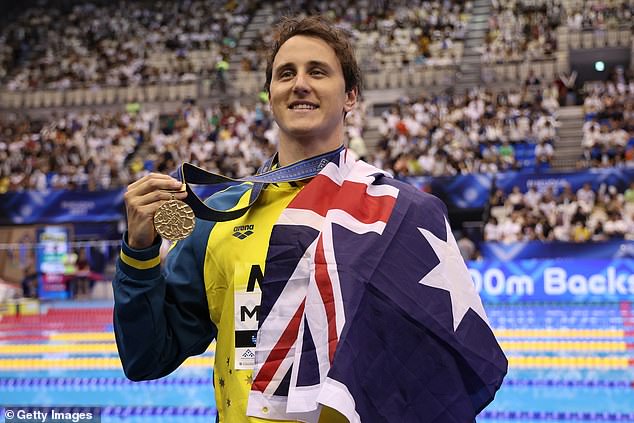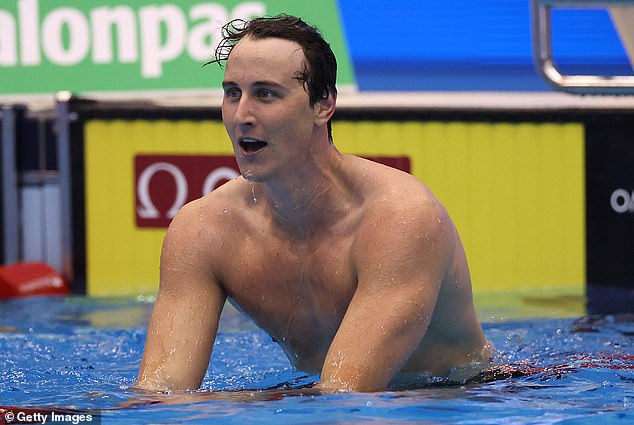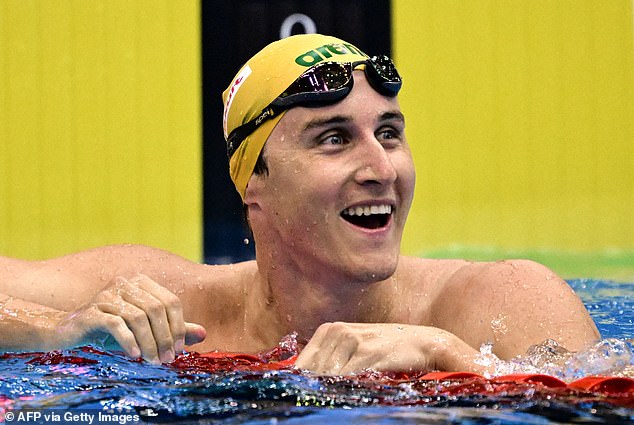Freestyle pioneer Cameron McEvoy won’t be flying to France with the rest of the Australian Olympic team this week, and there’s a special reason.
McEvoy booked his place in the upcoming Games by winning the 50m freestyle at the Australian Olympic selection trials in Brisbane.
The 30-year-old will become the first Australian to swim in four Olympic Games when he enters the pool in Paris.
MvcEvoy achieved the feat after quitting swimming before returning with a revolutionary training regime.
Instead of working endlessly in the pool, McEvoy practices rock climbing and calisthenics while practicing techniques that he keeps close to his chest…for now.
Cameron McEvoy (pictured) will not fly to France with the rest of the Australian Olympic team this week as he will disrupt his exclusive training schedule.

McEvoy has been granted special permission to remain in Brisbane until July while the rest of his Dolphins teammates are in Paris.
McEvoy has a secret personalized training program and has been given permission to remain in Brisbane and finish it while the rest of the Dolphins begin their own training camp in France.
“They felt that stopping their training after the tryouts, with travel and adjusting to jet lag, would potentially slow it down and be a risk for them,” Dolphins head coach Rohan Taylor told The Associated Press. Sydney Morning Herald.
‘You need standardized equipment like the KPASS block (Kistler Force Instrumented Exit Block) on the QAS to measure it and really help you progress through your readiness stages.
“It was better for him to stay and continue his preparation because he trains very specifically and uses such specific things, such as the indoor pool, the cameras, the blocks and the resources that the QAS has.” He trains this way uniquely and no one else really does… so I was happy to support that.
“Cam and his coach Tim (Lane) are coming on July 7.”
McEvoy says he plans to reveal his training secrets to the world, but not until after the Olympics.
“Eighteen months ago, my goal was to come back, try this new training approach and see what happens,” he said after clocking 21.35 seconds to win Wednesday night.
“And if I can get back under 22 (seconds), I’d be delighted.”

The talented 30-year-old will become the first Australian to swim in four Olympic Games.
‘What I’ve done so far has simply obliterated any expectations I had.
“What I’m most excited about is trying to do this (the Olympics) and then just compiling what I’ve learned and getting it out to the public.”
“I know there are a huge amount of swimmers who have been in my position, who are currently in my position, who would want to learn from that, a lot of coaches want to learn from that.
“It can provide a lot of good to many athletes who love the sport, but are not on the right path in terms of the type of training and philosophy.”
McEvoy offered a partial view: he mixes original strength training outside the pool with technical details in the water.
“The nature of my training is literally to replicate race pace, race environments, on a weekly basis, year-round,” he said.
“I’ve probably done close to 1,000 wetsuit replica races, going back 18 months… so when I get up and run, it’s very natural.”
“I can try to turn off that cognitive side of my mind and let everything flow.”
An example is the initial jump, which covers the time it takes to reach the 15m mark.
“My best before I came back to this was 5.5 seconds, now it’s 5.1,” he said.
“So literally, with one jump, a couple of underwater kicks and four strokes, I’m already almost half a second faster, which is crazy in a 50 freestyle.”
‘The rest was just force within the punch, not brute force… just trying to carry that with as much weight as I can without destroying that technique.
“We’ve gone down a lot of rabbit holes in that regard and probably discovered quite a few things that are new to the sport that, again, we’ve kept close to us.
“But we are interested in publishing it after Paris.”


